Science Matters Webinar Series
The “Science Matters” webinar series features some of our incredible Principal Investigators who will be joining us virtually from around the world. This series will address how COVID-19 has impacted their field work, allow them to share their personal stories of science, and provide our audience with the opportunity to ask questions and connect with Earthwatch scientists directly. We will also bring you “into the field” for some virtual backyard science experiences, and will hear from other fascinating and highly accomplished members of the Earthwatch community. Check back for the latest updates on this series, including links to register for each episode and recordings of past episodes.
As a nonprofit organization, we rely on the overwhelming generosity of our volunteers and donors to help us meet our commitments to our scientists and to operate our many education programs. We invite you to check out our post to find out how you can support Earthwatch during this challenging time.
Science Matters Episodes
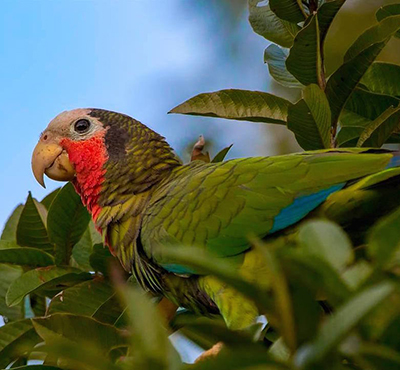
Nov. 18, 2020: Cuba has been described as an “Accidental Eden," but that ignores the incredible efforts of native Cuban conservationists and international partners in working to preserve the unique biodiversity and natural heritage of the largest island in the Caribbean. With over 6,500 species of vascular plants, 154 native species of reptiles, 67 native species of amphibians, and with 27 of the nearly 400 species of birds documented in Cuba found nowhere else in the world, Cuba remains a shining hotspot for biodiversity. The mountainous forests of the Lomas de Banao Ecological Reserve exemplify that diversity, though much remains unknown in this region. Earthwatch is happy to again be partnering with scientists from the Wildlife Conservation Society (WCS) and several of Cuba’s leading scientific institutions on the expedition Mapping Biodiversity in Cuba. Join WCS ecologist and Cuba Country Director, Dr. Natalia Rossi, and her Cuban colleague Maydiel Cañizares Morera, an ornithologist at the nearby Parque Nacional Ciénaga de Zapata, as they share their latest findings and stories from the field. You’ll find that there’s nothing accidental about these dedicated scientists’ commitment to preserving Cuba’s natural heritage.
Oct. 7, 2020: 40% of the global human population live within 100 km (~60 miles) of the marine coastline. We have long been drawn to that magical place where the land—our habitat—meets the sea, the habitat and home to more species than we can ever know. Most of those are small—some requiring microscopes to see, but many are not. In fact, many of the largest creatures to ever roam or swim on earth are frequently observed just offshore. Dr. Lenin Oviedo is interested in those “megafaunal species”, including whales and dolphins, and sharks and rays, and how they are able to share the coastal waters in which they live with us and all of the impacts we impose on those fruitful, nearshore waters. Dr. Oviedo has been the Principal Investigator for the Marine Mammals and Predators in Costa Rica project that we’ve supported since 2013, and is launching a similar project based in La Paz and Magdalena Bays in Baja, Mexico, starting next year.
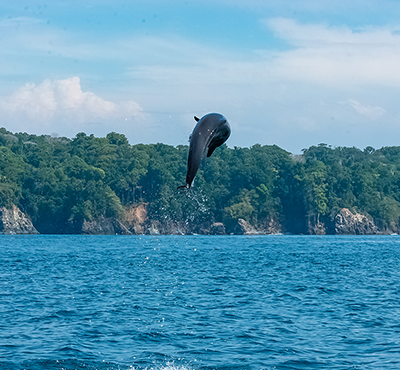
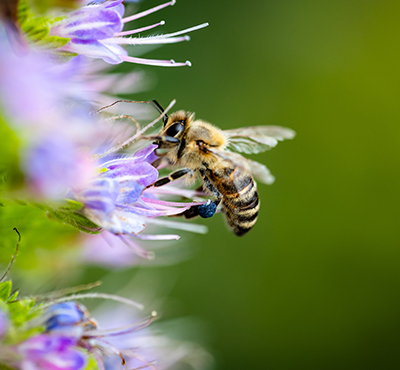
Sep. 9, 2020: Recent studies have found insect populations to be declining globally at rapid and alarming rates, likely impacting the many vital ecological services they provide. Pollinator decline, in particular, is a massive concern because of the potential impacts it will have on food production, human health, and ecosystem functioning, including the capacity of plants to provide essential services such as sequestering carbon from the atmosphere. But it’s not just about us. 75% of all flowering plants on earth rely on pollinators to reproduce, and those plants provide the foundation for countless food webs. Please join two Earthwatch-supported scientists—Dr. Valerie Peters, who leads Conserving Wild Bees and Other Pollinators of Costa Rica, and Dr. Jacqualine (Jackie) Grant, who will soon be leading one of our newest research expeditions in Utah that will focus on conserving native plants and pollinators. Valerie and Jackie will share their research on this often underappreciated, misunderstood, yet incredibly vital “guild” of pollinators that help make our planet—from the rainforests to the deserts—function.
Jun 16, 2020: In the high slopes of the Andorran Pyrenees, as in other mountain regions around the world, climate change has already begun to alter the landscape. Some species have begun to decline, and some are moving up to higher elevations (but if you think about it, there is a limit to how far “up” species can go in the mountains!). In addition, the ways humans use the land also causes shifts in species distribution and abundance, but little research has been done on how people have impacted this particular place. Questions of how climate change and human encroachment continue to alter this alpine world need answers as local organizations work towards sustainable solutions. Join Dr. Bernat Claramunt Lopez, who leads the Wildlife in the Changing Andorran Pyrenees project, in this webinar “window” on the wild Pyrenees Mountains in Andorra.
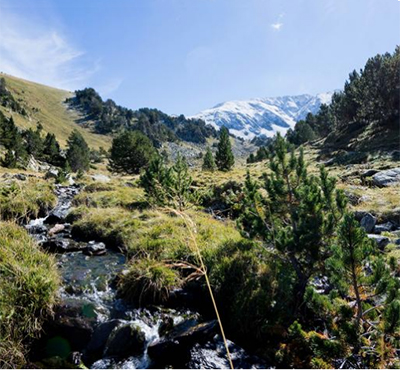

Jun 11, 2020: Separated by >4,000 miles (7,000 kilometers) of South Atlantic waters, the Magellanic and African Penguins are two of the most closely related penguin species on the planet—sister species, one might say. But despite their similar appearance, diets, nesting habits, and preference for more temperate climes, these sister species have faced different threats to their respective populations. The two projects that Earthwatch supports for each species also differ in their focal research questions, associated methods, and volunteer field work. Join Dr. Gabriela Blanco, who runs the Trailing Penguins in Patagonia project in Argentina, and Dr. Richard Sherley, lead scientist for the South African Penguins project on Robben Island, South Africa, as they share what they have learned about these amazing flightless birds, and what the future might hold for each of their species.
Jun 3, 2020: Around the world, people have been noticing the decline of many species of insects. Cleaner windshields, fewer fireflies brightening our summer evenings, and bug-zappers gathering dust on garage shelves provide some anecdotal evidence documenting this gradual decline. Now researchers are applying the rigor of the scientific method to confirm (or refute) what has been coined “the insect apocalypse”—in very diverse ecosystems—all over the planet. Dr. Lee Dyer and his team, now including PhD candidate Dani Salcido, have been studying factors that influence insect populations for over 25 years—particularly caterpillars and the parasitoid wasps and host plants that interact with the caterpillars in complex ways. Join Lee and Dani as they share some of their research findings from the U.S., Central and South America, which landed their research on the May 2020 cover of National Geographic.
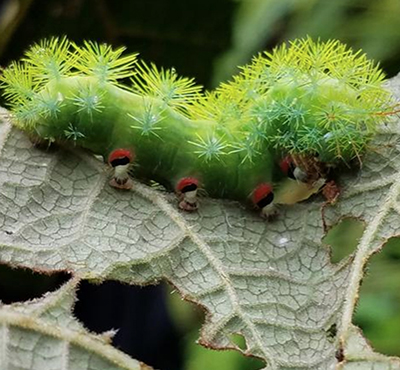
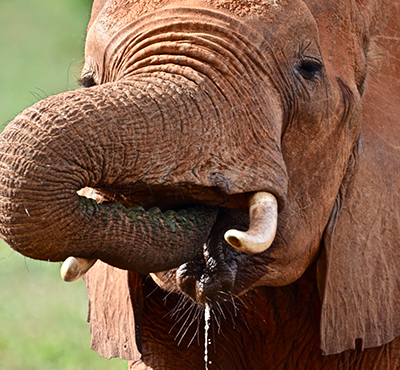
May 21th, 2020: Join African elephant biologists Dr. Bruce Schulte of Western Kentucky University and Lynn Von Hagen, a Ph.D. candidate at Auburn University, as they provide an update on their research on effective elephant deterrent design. The Kasigau Corridor connects Tsavo East and West National Parks in southern Kenya, but it is also home to several thousand people who rely on their crops for food, barter, and money. Keeping elephants and other wildlife out of the crops means more food for the people, and hopefully less lethal encounters with the wildlife—also a vital part of the local tourism-driven economy. Climate change is the real elephant in the room in this saga, as increasing aridity is changing what crops can grow there. Coming up with crops that will thrive under the changing climate, provide critical food and income, while at the same time, be less palatable to wildlife is another important part of this rich, solution-driven, community-focused research project.
May 14th, 2020: Join Dr. Dave Oleyar, Director of Long-term monitoring and Community Science at Hawkwatch International, and the Principal Investigator for the Following Forest Owls in the Western U.S. project with Earthwatch. Dave will be providing an update on his owl project in the Chiricahua Mountains in Arizona and the mountains of northern Utah, and then Dave and Stan will launch into a discussion on migration, urban bird ecology, and backyard bird research and conservation opportunities that everybody can participate in.
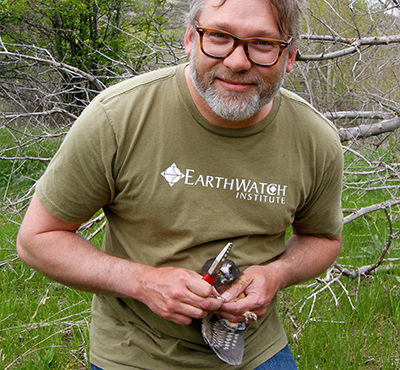
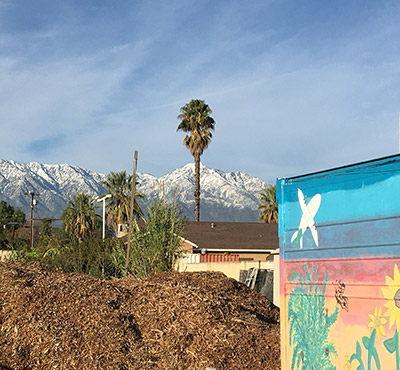
May 7th, 2020: The devastating COVID-19 pandemic has laid the groundwork for an environmental experiment of sorts. What happens when transportation around the world grinds to a halt, when air and automobile travel is dramatically reduced within a matter of weeks? How do these changes impact the quality of the air we breathe, and, if maintained, how might that affect our overall health and wellbeing? What lessons can we learn from this unique time period that will help us to better manage air pollution once traditional travel resumes? In the 5th episode of our Science Matters webinar series, we will be joined by Earthwatch's Director of Research Initiatives, Dr. Mark Chandler, and environmental educator Mary Walls who will explore how community-based air quality monitoring can help improve our understanding of air pollution and identify actions to reduce exposure to unhealthy air.
April 30th, 2020: The fourth episode of our Science Matters series will feature multiple Earthwatch scientists joining us from around the world to discuss marine research and conservation efforts. Dr. Demian Chapman is an Associate Professor in the School of Environment, Arts and Society at Florida International University who leads the Earthwatch expedition Shark and Ray Conservation in Belize. Annabelle Brooks, M.Sc., is an Adjunct Staff Scientist at Cape Eleuthera Institute and Principal Investigator of the expedition Tracking Sea Turtles in The Bahamas. Dr. Filipa Samarra is the lead investigator of the Icelandic Orca Project who leads the expedition Killer Whales and Their Prey in Iceland.
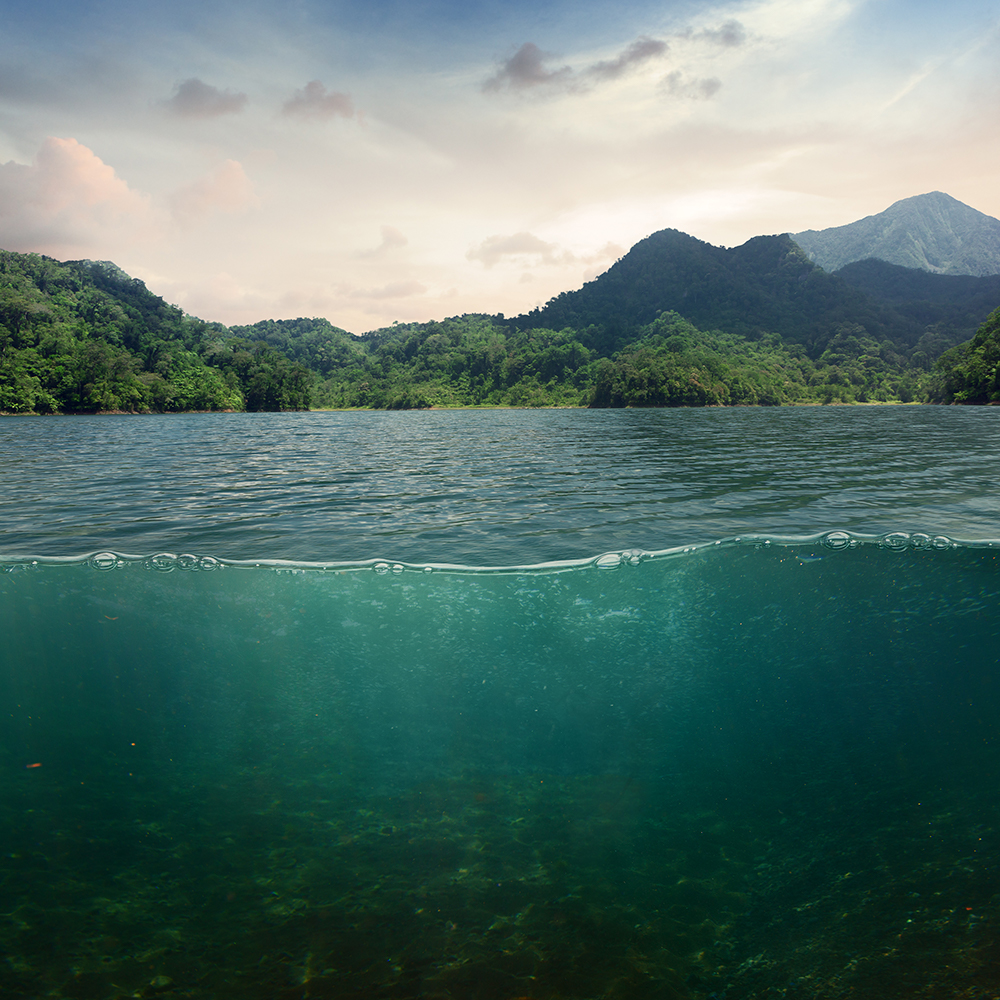
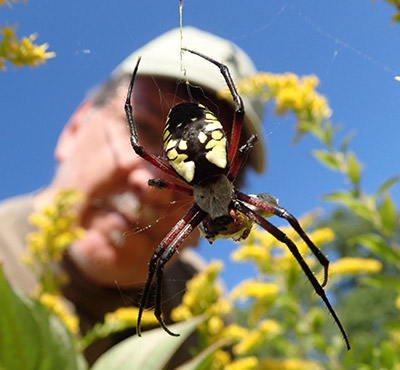
April 22nd, 2020: The third episode of our Science Matters series will feature Dr. Stan Rullman, Earthwatch's Science Director, who will lead us through a "Backyard Science" experience. Follow along as Stan high fives bumblebees and practices his melodious bird calls while he shares how you can get involved with science and nature from your backyard or in your community.
.
April 15th, 2020. Earthwatch's Director of Research, Dr. Stan Rullman, will be joined by Dr. Steven Mamet and Dr. LeeAnn Fishback for an episode focused on their experiences on the front lines of climate science at the edge of the Arctic. Steve is a Research Associate at the University of Saskatchewan and the Principal Investigator of the Earthwatch expedition Climate Change in the Mackenzie Mountains. LeeAnn is the Scientific Coordinator at the Churchill Northern Studies Centre and PI of the Earthwatch expedition Climate Change at the Arctic's Edge.
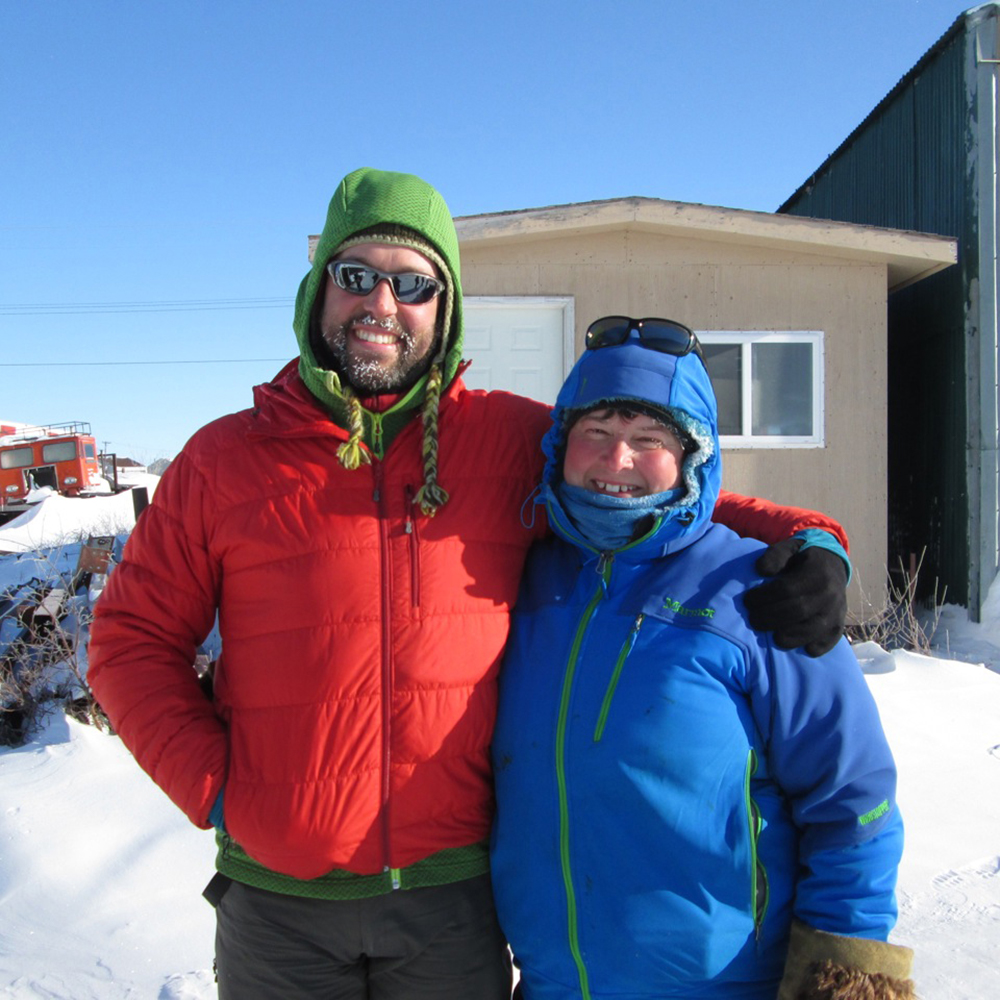
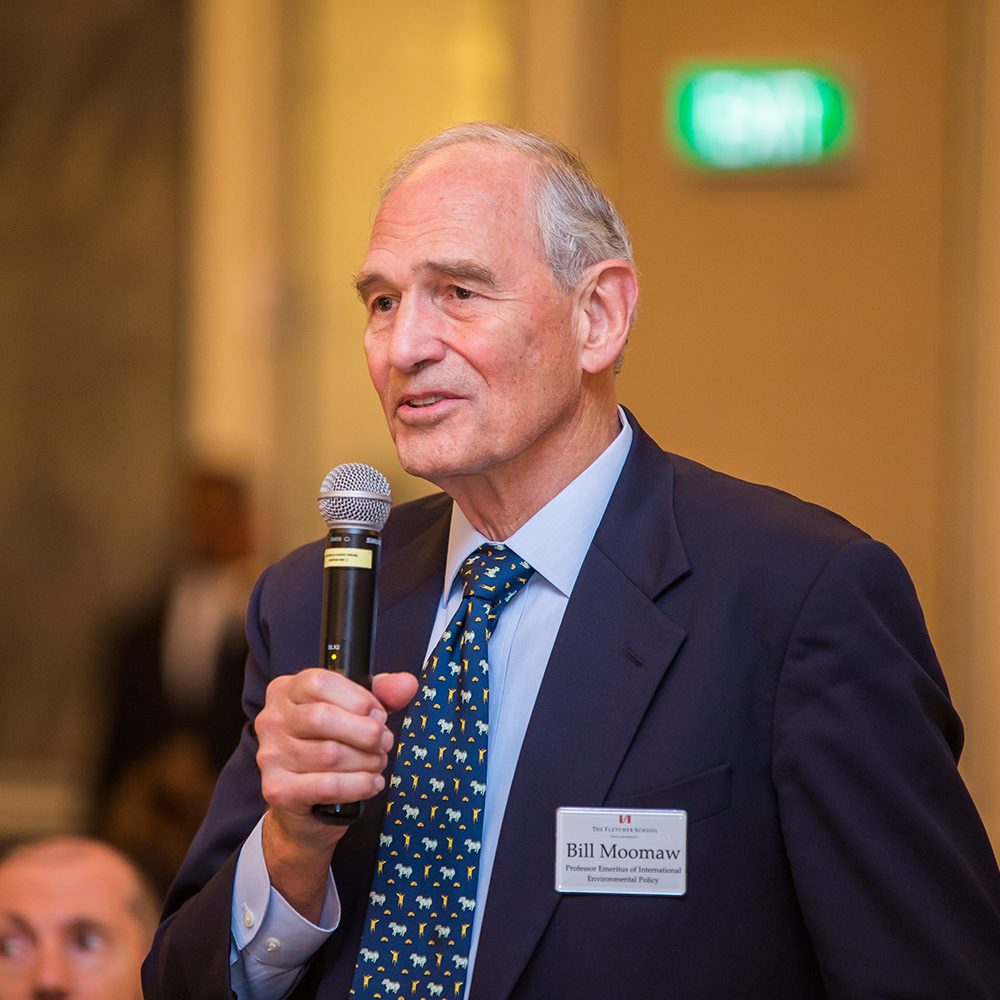
.
April 9th, 2020: Dr. William Moomaw is Professor Emeritus of International Environmental Policy at Tufts University Fletcher School of Law and Diplomacy, serves on Earthwatch’s Board of Directors, and is the head of Earthwatch's Science Committee. Bill will be speaking about three global emergencies that science predicted: COVID-19, the climate crisis, and biodiversity loss.
Past Episodes
Episode 1 with Dr. William Moomaw
Episode 2 with Drs. LeeAnn Fishback & Steve Mamet
Episode 3 with Dr. Stan Rullman
Episode 4 Marine Science
Episode 5 Air Quality
Episode 6 with Dr. Dave Oleyar
Episode 7 Elephants and Agriculture
Episode 8 Insect Decline
Episode 9 Penguin Research
Episode 10 Alpine Ecosystems
Episode 11 Pollinators
Episode 12 Marine Mammals
Episode 13 Cuba Biodiversity
space
YOUR SUPPORT MATTERS
Earthwatch depends on donations—above and beyond what we raise from volunteers who participate on our expeditions—in order to deliver our global conservation mission. In fact, volunteer contributions provide only half of the total resources Earthwatch needs to sustain over 40 field research expeditions, a wide variety of educational programs, corporate sustainability trainings, and more each year.